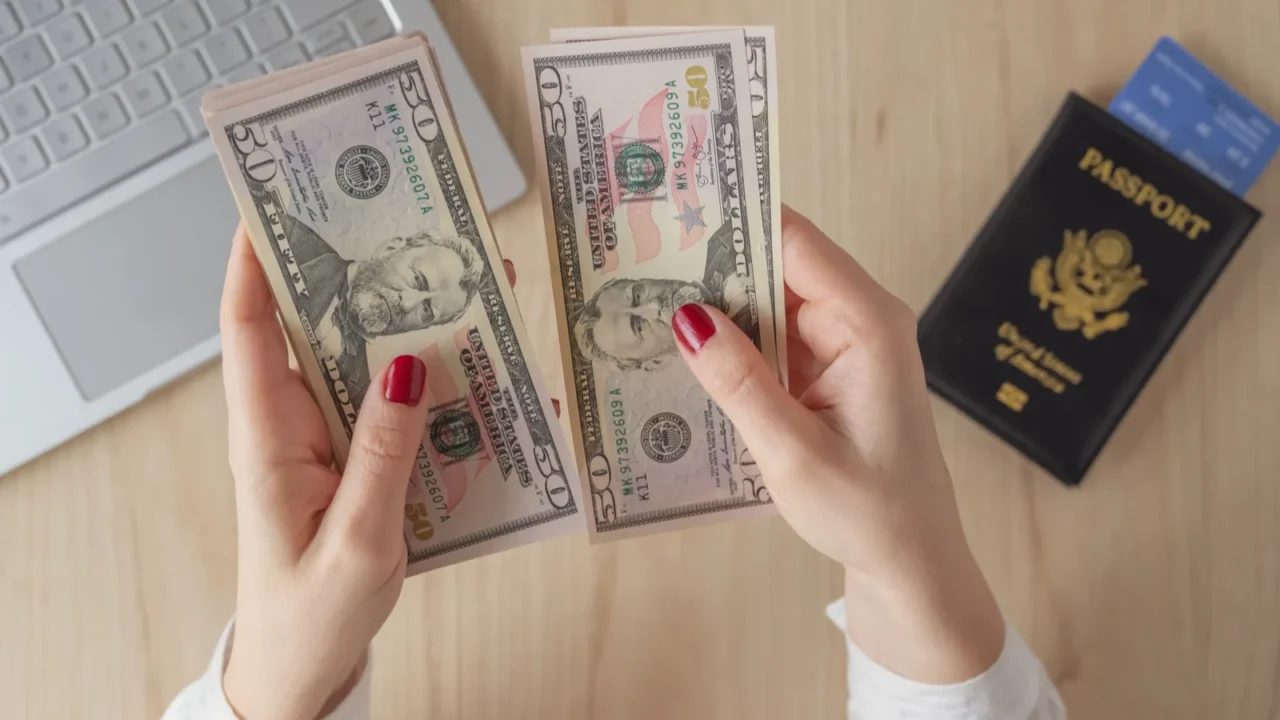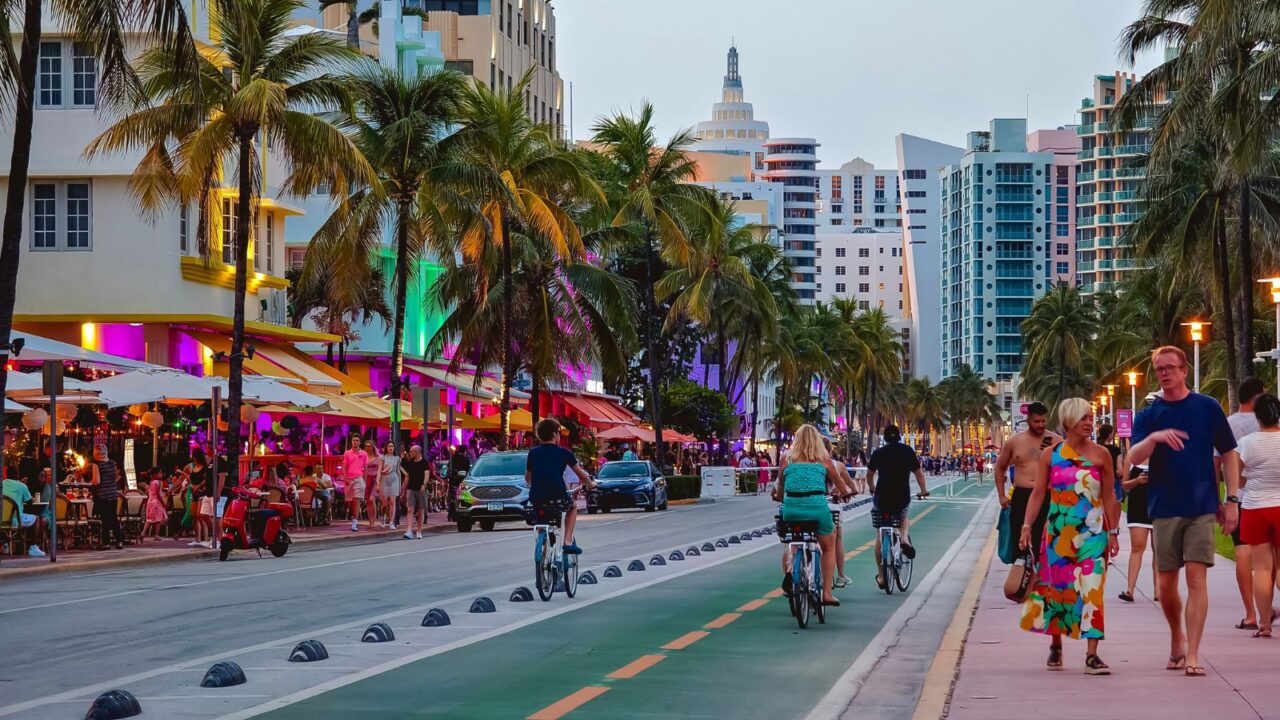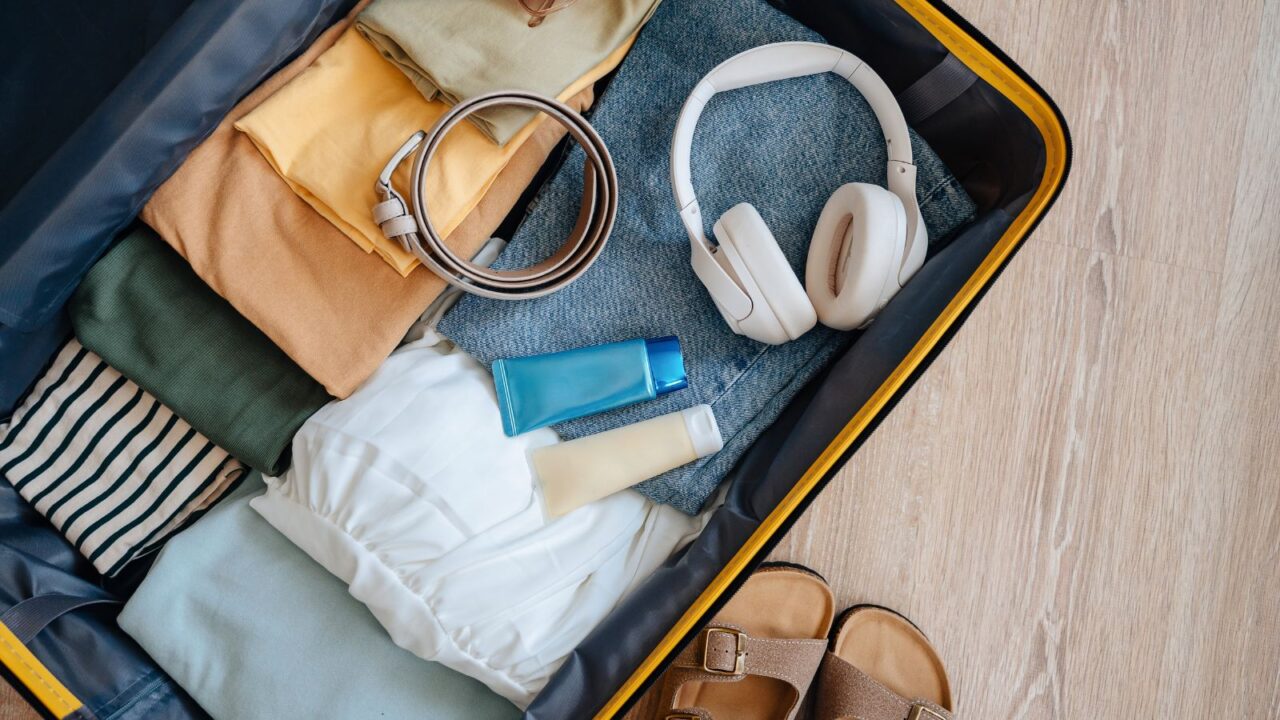
Think experiences, not extras
How can you travel the world on $50 a day without missing the joys of the journey? Skip pricey souvenir shops and spend on local street food or a small museum ticket instead.
When you focus on experiences instead of things, your money goes further and your trip feels richer. You’ll come home with memories worth more than any expensive trinket. Think of $50 as your daily adventure fund, not just a budget limit.

Pick the right countries
Southeast Asia, South America, and parts of Eastern Europe are packed with culture, great food, and affordable stays that easily fit into $50 a day. Countries like Thailand, Vietnam, Peru, and Bulgaria can give you full days of exploring without draining your wallet.
On the flip side, places like Iceland or Switzerland require creative planning to keep costs low. Choosing your destination wisely is the biggest step to making your budget work.

Stay in hostels or guesthouses
Forget the luxury hotels, you don’t need them to enjoy your trip. Hostels, budget guesthouses, or even small family-run inns can cost less than $20 a night in affordable countries.
Many include free breakfast, shared kitchens, and chances to meet other travelers. Private rooms with shared bathrooms are a good middle ground if dorms aren’t your thing.

Eat like the locals do
Skip tourist restaurants with overpriced menus. Instead, try small neighborhood cafes, food stalls, and local markets. Not only will you pay less, often under $5 for a filling meal, you’ll get to taste authentic flavors.
Another trick? Cook your own breakfast or dinner using market ingredients. This combo of eating out locally and self-cooking can keep your food budget around $10–$15 a day without feeling deprived.

Walk whenever possible
One of the easiest ways to save money while traveling? Use your feet. Walking costs nothing, keeps you healthy, and lets you stumble across hidden gems that buses or taxis would speed right past.
In many cities, you can see the main sights without ever paying for transport. If distances are too long, use public transit, it’s almost always cheaper than taxis or rideshares.

Use public transportation
Talking about public transportation, buses, subways, trams, and trains are your budget’s best friends. In many countries, you can ride all day for the price of a single short taxi trip.
Learn how to use local transport cards or day passes, which often cut costs even more. Overnight buses can save you both time and the cost of a hotel night. The less you spend getting from A to B, the more you have left for food, fun, and unexpected adventures.

Book flights wisely
Airfare can eat into your budget fast if you’re not careful. Look for round-the-world tickets or multi-city deals that cut the cost per trip.
Traveling during the off-season or on weekdays often saves hundreds. Use flight search tools to track prices and pounce when they drop. Also, be flexible with your destinations; sometimes changing your starting city can make flights dramatically cheaper.

Travel slower, spend less
Fast travel is expensive. The more you hop between cities and countries, the more you spend on transportation. Slow travel, staying longer in each place, means you get better deals on lodging, learn local secrets for cheap eats, and avoid constant ticket costs.
You also get to relax instead of racing through sights. Think of it as settling in rather than passing through. Your budget (and your energy) will thank you for slowing down.

Embrace free activities
Not everything worth doing has a price tag. Many cities have free walking tours, parks, beaches, street festivals, or museum days. Nature spots like hiking trails or waterfalls are often free, too.
A little research before you go can uncover dozens of no-cost ways to enjoy a destination. Filling your days with free activities leaves more money for the occasional splurge, like a special dinner or paid tour you’ve been dreaming about.

Learn basic bargaining skills
In many parts of the world, haggling is part of the shopping experience, especially in markets. Knowing how to politely negotiate can cut your costs on souvenirs, food, or transport.
Always be respectful, smile, and know when to walk away. You’re not just saving money, you’re also connecting with local culture. Bargaining can be fun when it’s done right, and those small savings add up over weeks of travel.

Use travel credit perks
Some credit cards offer free travel insurance, no foreign transaction fees, or points you can use for flights and hotels. Picking the right card before your trip can save hundreds over time.
Always pay the balance in full; interest charges kill any savings. Even small perks, like free checked bags or airport lounge access, can make travel smoother and cheaper. It’s like giving your $50 budget a little extra muscle without spending more.

Pack light, save more
Heavy bags cost more to check and are a nightmare to lug around. Traveling light means you can often skip baggage fees and move around more easily. Choose versatile clothing you can mix and match, and wash clothes along the way.
A smaller bag also helps you navigate public transportation without the stress of dragging huge suitcases. Less weight equals more freedom, and more money in your pocket for experiences.

Travel in the off-season
Visiting a place during its off-season often means cheaper flights, discounted hotels, and fewer crowds. The weather might be less perfect, but you’ll see a more authentic side of the destination.
Off-season travel can drop daily costs by 20–50%, making it much easier to stick to $50 a day. Plus, you won’t be competing with hordes of tourists for the best views or local eats.

Stay flexible with plans
Rigidity can be expensive. If you’re willing to change routes, dates, or accommodations, you can grab last-minute deals that others miss. Apps and websites often slash prices on same-day bookings or unused tickets.
Being flexible also means you can pivot to cheaper destinations if your original plan gets too pricey. Think of flexibility as a superpower for budget travelers; it opens the door to unexpected opportunities.

Use overnight travel to save
Taking an overnight bus or train kills two birds with one stone, you get to your next destination and save the cost of a night’s stay.
Many long-haul buses are surprisingly comfortable, with reclining seats and onboard Wi-Fi. It’s not luxury, but it’s efficient and budget-friendly. Even better, you arrive early in the morning, ready to start exploring without wasting daylight hours. Save money smartly and visit underrated gems like Caribbean Islands that deserve all your attention.

Connect with other travelers
Meeting fellow travelers can lead to shared rides, group tours, or even splitting the cost of a room. Many budget travelers are happy to team up to save money, and you might even make a lifelong friend.
Hostels, walking tours, and online travel forums are great places to connect. Collaboration can make $50 stretch further while adding a social element to your trip.
Collaboration can make $50 stretch further while adding a social element to your trip, perfect for ticking off iconic spots like Rio and Machu Picchu in one unforgettable journey.
Was this helpful? Hit like and share your best budget travel tips in the comments. We’d love to hear your ideas
Read More From This Brand:
- East Coast Flash Floods, What Travelers Need to Know Now
- A Beginner’s Guide to America’s Quirkiest Roadside Attractions
- The Most Iconic Hotel Buildings Around the World
Don’t forget to follow us for more exclusive content right here on MSN.
This slideshow was made with AI assistance and human editing.